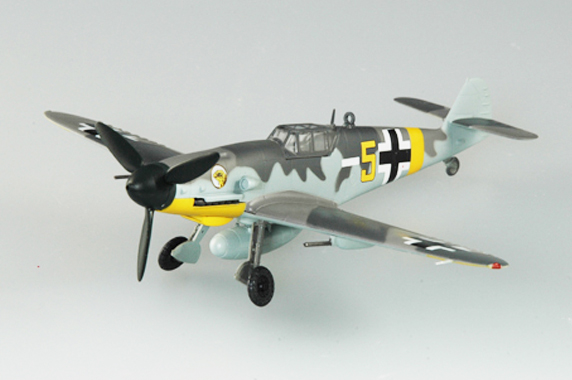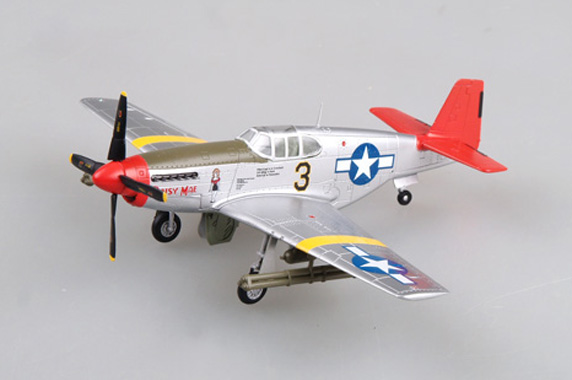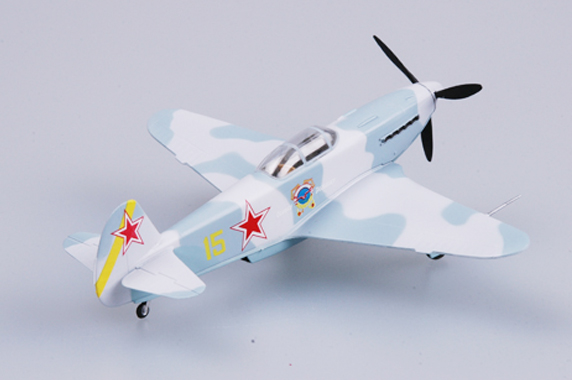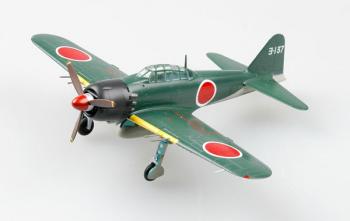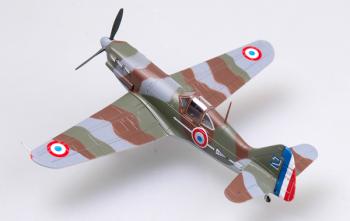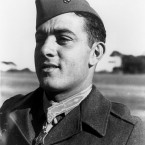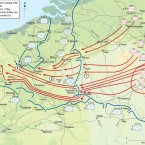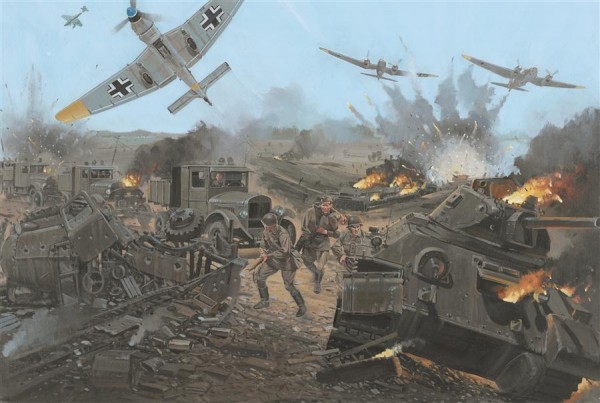
Rules: Warplanes in Bolt Action
The following rules for Warplanes were part of the original draft of the Bolt Action rulebook, but in the end they did not make the cut and they were simplified and made more abstract, giving birth to the current rules for air strikes. We think however that these Warplanes rules make a good read for your coffee break – World War Two planes carried an unbelievable amount of firepower!
Feel free to have a go at playing Bolt Action with these Warplanes rules replacing the Forward Air Observer rules. In terms of army selection, instead of including an Air Observer, each Platoon can include a Warplane chosen from the appropriate list at the end of this article. We have a selection of Warplanes available in our webstore which we use to represent the actual plane during game play.
Courtesy of Osprey Publishing
Warplanes are rare and expensive units, and remain on the table for a limited amount of time. Because of the scale of our game, we will concern ourselves only with tactical air power: fighters, fighter-bombers and dive bombers, either strafing or attacking ground targets directly. We feel that strategic attack by high altitude level bombers is satisfactorily covered by the rules for artillery barrages.
THE UNIT
Warplanes are units consisting of a single model. They are treated as vehicles, with the exceptions noted below. We assume that the models are mounted on the ‘flying bases’ they are supplied with, which place them roughly three inches above the ground. If you are not using these bases, assume that the warplane model is roughly 3” above the ground, and literally hold it there when working out line of sight to and from the plane.
ORDERS
Warplanes can only be ordered to Advance or Run – and in their case Advance means ‘Ground Attack’, while Run stands for ‘Pull Out’. They can also be ordered ‘Down’ when in Reserve.
Important exception: whenever you have planes in your army (whether in Reserve or on the table), you must Order them first, before you order any of your ground forces.
Movement
Warplanes never begin the game on the table and are always left in Reserve.
To order them onto the table (starting from turn 2, like all Reserves), you need to order them to Advance, or you can leave them in Reserve by ordering them Down, as normal.
If the Advance order is successful, the plane arrives – work your way through the following sequence:
- Identify an enemy unit as the target for the plane.
- Place the warplane on the table, in contact with the centre point of a randomly determined table edge (roll a die; on a 1 it’s your own table edge, 2 is the table edge on your left, 3 is the one on your right, 4 is the opponent’s edge (re-roll results of 5 or 6), pointing towards the intended target.
- Move the plane in a straight line towards the intended target, stopping 12” away from it (it is mandatory to go ‘Wroooom’ as you do this). Of course warplanes can move over any intervening terrain and models, and may even end their move over any type of terrain. If the move ends over another model, or a place where it’s impossible to place the model, move it closer to the intended target until you find a space for the plane. If the initial position of the plane, when it enters the table, is already within 12” of the target, simply leave the plane in place.
- If the enemy has any Flak weapons in Ambush, he can interrupt this move as normal to fire at the aircraft. If it survives, the plane finishes its move.
- The plane opens fire against the target, as normal for an Advance order.
Following turns
If the warplane was on the table at the start of a turn, you must order it to Run – this means that the warplane will pull up, disengage and gain altitude, banking around and preparing to come in for another attack. To execute this Run order, simply remove the warplane from the table and put it back in Reserve. No order tests are needed, even if the model is pinned, and all pin markers on the model are removed.
In the following turn, you can once again either leave the plane in Reserve (with a Down order) or order it back onto the table.
If left in Reserve, the plane is circling over the battlefield in search of a target. If you order it to Advance, the order is automatically successful, no need to test, and the plane comes in again for another pass – simply repeat the procedure described above.
It must then Run to pull out again in the following turn, going back to Reserve, to then return for another attack in a successive turn, and so on until the end of the game.
To summarize, warplanes arrive from Reserve like other units and then come in for a ground attack, pull out for a turn and then can automatically come back for another ground attack, to then pull out again, and so on and so forth. This means that if you are lucky and get them in on turn 2, you are then able to execute another attack on turn 4, and then again on turn 6, turn 8, etc. So, in a normal game that lasts six or seven turns, you will only get up to three attacks – so use them wisely!
Courtesy of Osprey Publishing
shooting AGAINST WARPLANES
Difficult targets
As they are moving so fast, only two types of weapons can be fired against warplanes:
– any weapon with the Flak special rule (remember this includes all pintle-mounted weapons).
– all small arms with a range higher than 12” carried by infantry units (not by artillery or vehicles, unless of course the weapon also has the flak rule)
Any other weapon is considered too slow to and cumbersome to target a strafing plane.
In addition, when firing against a warplane, all units always hit on a 6, ignoring all to hit modifiers.
Line of sight
When shooting at a warplane, units ignore all intervening terrain that is more than 12″ away from them – this represents the fact they are firing at a target that is high above the terrain.
Warplane models never block line of sight themselves and are always ignored when working out line of sight, so any unit, friend or foe can simply shoot through them as if they were not there.
Effects of damage
All warplanes count as soft-skinned vehicles, so the basic chance of scoring a point of damage against them is a 6+. However, damaging them does not actually destroy them automatically like in the case of normal soft-skinned vehicles. Rather, any point of damage scored simply translates into one additional pin marker. Only if you score exceptional damage (i.e. you rolled a natural 6 for damage followed by another natural 6), a warplane is destroyed straight away.
If the number of pin markers on the plane reaches 6, the plane is removed and counts as destroyed, representing the fact that the pilot has decided to pull out of the ‘heavy flak’ zone and go back to base. However, remember that each time a Run order is given, removing the plane from the table, all its pin markers are removed too – so you need to get 6 pin markers in a single turn to drive off an aircraft!
WARPLANES shooting
When the plane itself opens fire, the ‘moving and firing’ modifier always applies, so their basic chance of hitting is 4+. Warplanes’ weapons are never in long range as they always shoot from 12” or less from their target, and are never in ‘point blank’ range. Cover modifiers apply as normal – work out the line of sight of the plane from its guns, as normal. Also keep in mind that the target unit can go Down as normal, and that the negative modifier from Pin markers does indeed apply. Note that Recce vehicles cannot use their Escape ability when attacked by a warplane.
When rolling to damage ground vehicles, warplanes always hit the target’s top armour, regardless of their position (which makes them very good against open topped vehicles!).
Some warplanes have weapons called ‘bombs’ or ‘rockets’, which are followed by a number in brackets. These weapons count as a howitzer that can be fired only a number of times equal to the number in brackets, either simultaneously or in separate turns. For example a bombs (2) weapon can be fired twice during the game, either both at the same target in the very same turn, or once against a target in a turn, and then once against another target in a later turn. Bombs count as medium howitzers, rockets count as heavy howitzers.
Close quarters
Warplanes can never assault or be assaulted.
Interceptors – Warplane vs. Warplane
If a vehicle has the Interceptor special rule in its entry, it can fire its machine guns and cannons (not rockets and bombs) against other warplanes. This is done exactly like attacking a ground target – simply fly your warplane so that it ends its move 12″ from an enemy plane while it’s on the table.
If this final position is in the target’s rear arc you hit the target on a 4+, rather than a 6, as you are tailing the other plane – no modifiers apply. However, if the target has a machine gun in the rear arc, it will shoot as if it was in Ambush against your attacking plane before you can open fire, hitting on 5+. In all cases where a warplane is firing against another warplane, any intervening terrain is ignored – the planes are high above the terrain.
Air Superiority – Interceptor Ambush
If the enemy army does not include any Interceptors (either because none were included from the start, or because they have all been driven off or shot down), you have Air Superiority. This means that any of your Interceptors that are in Reserve can be ordered to Ambush. If you do this, the plane is waiting high in the clouds ready to dive against any enemy aircraft that approaches. Any Interceptor in Ambush can come in against an enemy warplane that is about to attack a ground target – this is done as follows.
The enemy plane follows its ground attack sequence as normal, but just before it opens fire, you can bring any ambushing Interceptors in from Reserve (no test required) and execute their attack sequence as described above, using the enemy warplane as the target. After the Interceptors have resolved their attack against the enemy warplane, then (assuming it survived) it will resolve its attack against the ground target.
BRITISH warplanes
Hawker Hurricane Fighter
Cost: 160 pts (Inexperienced), 200 pts (Regular), 240 pts (Veteran).
Weapons: four light autocannons. All covering front.
Special Rules: Interceptor
Supermarine Spitfire Fighter
Cost: 176 pts (Inexperienced), 220 pts (Regular), 264 pts (Veteran).
Weapons: two light automatic cannons and four MMGs. All covering front.
Special Rules: Interceptor
Hawker Typhoon Fighter-bomber
Cost: 176 pts (Inexperienced), 220 pts (Regular), 264 pts (Veteran).
Weapons: four light automatic cannons and bombs (2). All covering front.
Options: upgrade bombs (2) to rockets (2) for +25 pts.
GERMAN warplanes
Messerschmitt Bf-109 Fighter
Cost: 120 pts (Inexperienced), 150 pts (Regular), 180 pts (Veteran).
Weapons: two HMGs and one light autocannon. All covering front.
Special Rules: Interceptor
Focke-Wulf Fw 190 Fighter
Cost: 192 pts (Inexperienced), 240 pts (Regular), 288 pts (Veteran).
Weapons: two HMGs and four light autocannons. All covering front.
Special Rules: Interceptor
Junkers Ju 87 ‘Stuka’ Dive-bomber
Cost: 100 pts (Inexperienced), 125 pts (Regular), 150 pts (Veteran).
Weapons: two MMGs and bombs (2). All covering front. One MMG covering rear.
AMERICAN warplanes
P-51 ‘Mustang’ Fighter
Cost: 160 pts (Inexperienced), 200 pts (Regular), 240 pts (Veteran).
Weapons: six HMGs. All covering front.
Special Rules: Interceptor
P-39 ‘Airacobra’ Fighter
Cost: 160 pts (Inexperienced), 200 pts (Regular), 240 pts (Veteran).
Weapons: one heavy autocannon, two HMGs and four MMGs. All covering front.
Special Rules: Interceptor
P-47 ‘Thunderbolt’ Fighter-bomber
Cost: 208 pts (Inexperienced), 260 pts (Regular), 312 pts (Veteran).
Weapons: eight HMGs and bombs (2). All covering front.
Options: upgrade bombs to rockets for +25 pts.
SOVIET warplanes
Yakovlev ‘Yak’ Fighter
Cost: 120 pts (Inexperienced), 150 pts (Regular), 180 pts (Veteran).
Weapons: two HMGs and one light autocannon. All covering front.
Special Rules: Interceptor
Lavochkin Fighter
Cost: 112 pts (Inexperienced), 140 pts (Regular), 168 pts (Veteran).
Weapons: two light autocannons covering front.
Special Rules: Interceptor
Illyushin ‘Sturmovik’ ground-attack aircraft
Cost: 168 pts (Inexperienced), 210 pts (Regular), 252 pts (Veteran).
Weapons: two MMGs, two light automatic cannons and bombs (2). All covering front. One HMG covering rear.
Options: upgrade bombs to rockets for +25 pts.
Special Rules: Flying tank (the first exceptional damage result suffered in the game is ignored).
JAPANESE warplanes
Mitsubishi A6M ‘Zero’ Fighter
Cost: 128 pts (Inexperienced), 160 pts (Regular), 192 pts (Veteran).
Weapons: two light automatic cannons and two MMGs. All covering front.
Special Rules: Interceptor
Nakajima Ki-43 ‘Hayabusa’ Fighter
Cost: 96 pts (Inexperienced), 120 pts (Regular), 144 pts (Veteran).
Weapons: two HMGs covering front.
Special Rules: Interceptor
Aichi D3A ‘Val’ Dive-bomber
Cost: 80 pts (Inexperienced), 100 pts (Regular), 120 pts (Veteran).
Weapons: two MMGs and bombs (1). All covering front. One MMG covering rear.
FRENCH warplanes
Dewoitine D.520 Fighter
Cost: 120 pts (Inexperienced), 150 pts (Regular), 180 pts (Veteran).
Weapons: one light automatic cannon and four MMGs. All covering front.
Special Rules: Interceptor
Morane-Saulnier M.S.406 Fighter
Cost: 104 pts (Inexperienced), 130 pts (Regular), 156 pts (Veteran).
Weapons: one light automatic cannon and two MMGs. All covering front.
Special Rules: Interceptor
Breguet 693 ground-attack aircraft
Cost: 128 pts (Inexperienced), 160 pts (Regular), 192 pts (Veteran).
Weapons: one light automatic cannon, two MMGs and bombs (2). All covering front. Two MMGs covering rear.
ITALIAN warplanes
Macchi C.202 ‘Folgore’ Fighter
Cost: 112 pts (Inexperienced), 140 pts (Regular), 168 pts (Veteran).
Weapons: two HMGs and two MMGs. All covering front.
Special Rules: Interceptor
Fiat G.50 ‘Freccia’ Fighter
Cost: 96 pts (Inexperienced), 120 pts (Regular), 144 pts (Veteran).
Weapons: two HMGs covering front.
Special Rules: Interceptor
Breda Ba.65 (or Reggiane Re.2002) Fighter-bomber
Cost: 128 pts (Inexperienced), 160 pts (Regular), 192 pts (Veteran).
Weapons: two HMGs, two MMGs and bombs (2). All covering front.


